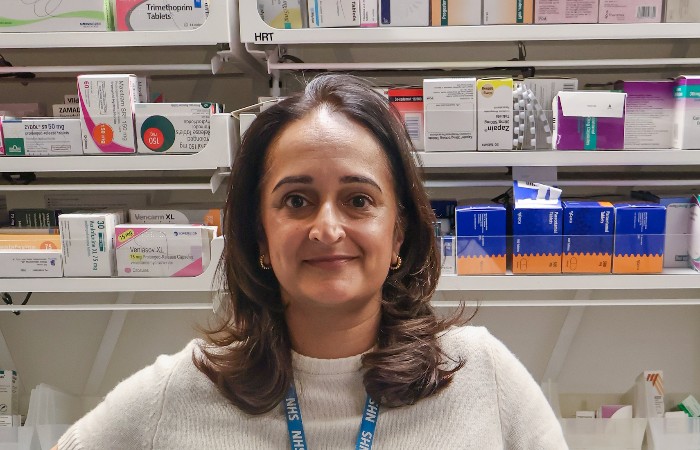CPE committee member calls for national pharmacy deprescribing service
In Profession news
Follow this topic
Bookmark
Record learning outcomes
The Community Pharmacy England (CPE) committee member Sukhi Basra has urged the negotiating body to encourage the Government to fund a national pharmacy deprescribing service.
Writing exclusively for Independent Community Pharmacist, Basra (pictured), one of two National Pharmacy Association (NPA) representatives on CPE’s committee, said pharmacists across the country were already doing deprescribing work “informally” on top of their large workload and should be funded for it.
Representative bodies in pharmacy and Government policymakers have for some time been concerned that patients, particularly older groups, are taking too many medicines which may be doing them more harm than good.
A Department of Health and Social Care review, published in September 2021 and led by the then chief pharmaceutical officer Keith Ridge, set out a plan to reduce overprescribing and identified “problematic polypharmacy” as “one of the main consequences of overprescribing”.
The review said: “People who are taking multiple medicines are more likely to be older, have worse health conditions, be taking medicines for longer, face more difficult decisions about treatment and find the cumulative burden of their medication harder to bear than the average.”
Deprescribing can be as powerful as prescribing ever was
The review said it was more difficult “for clinicians to spot problematic or unnecessary prescriptions, as the cumulative effect can be difficult to evaluate without more specialist training.”
However, it cautioned that “deprescribing seeks to apply best practice in prescribing to the process of stopping a medicine” and warned: “It needs the same skill and experience from prescribers and the same level of support from pharmacists, and from guidance, data and insight, even from the pharmaceutical manufacturers, to get the best results.”
With CPE's 2026-27 funding talks with the Government expected to start shortly, Basra, who is also NPA vice-chair, used her personal experience as a pharmacist to illustrate where pharmacies can make a telling impact to improve patient outcomes when it comes to opioids.
"Many of my patients, especially women from lower socioeconomic or multilingual backgrounds, live in a swirl of competing pressures: limited health literacy, multiple responsibilities, and rarely enough time or trust in the system to ask the right questions," she said.
"Take the woman who came in seeking co-codamol to help her sleep. She’d had it after surgery and just...kept taking it. English wasn’t her first language. She hadn’t seen her GP in months due to childcare, work and life pressures.
"She assumed it was safe because it had once been prescribed.
Insisting “deprescribing can be as powerful as prescribing ever was”, Basra said: “I believe deprescribing should be a nationally commissioned pharmacy service. We’re already doing this work informally – having conversations, raising red flags with GPs, supporting safer step-downs.
“But without formal structure, time or funding, we’re doing it off the side of our desks in between the 200 other things we’re responsible for.”
In 2019, Public Health England revealed over half a million people were taking opioids for longer than three months and more frequently in areas of higher deprivation.
Basra added: “We know long-term opioid use can cause more harm than good, including dependency, tolerance, and withdrawal.
"And yet, as Bužančić et al. (2022) found in their systematic review, community pharmacy-led deprescribing initiatives are both clinically effective and economically wise, especially when pharmacists are empowered to lead structured reviews.”
Basra said it was “time Community Pharmacy England steps up and advocates for a nationally funded opioid deprescribing service led by pharmacists”.
CPE: We’ve been exploring national deprescribing service
CPE chief executive Janet Morrison told ICP a national deprescribing service was “one of a number of service development options” pharmacy’s negotiator “has been exploring and advocating for” and remained on its “list of service priorities”.
“We have been talking to policymakers for many months, including by presenting a detailed economic analysis of investment options to enable different levels of service growth, to influence the upcoming negotiations mandate,” Morrison said.
She said CPE “regularly” briefs MPs on its blueprint, Unlocking Community Pharmacy’s Potential “through the commissioning of services like deprescribing”.
“The sector has so much to offer and many pharmacy owners are ambitious about delivering more services, but this does need economic stabilisation and sustainability for the future of the sector,” Morrison said.
She insisted contractors told CPE through its “negotiating priorities poll” that closing community pharmacy’s funding gap should be its top priority.
We need ambitious, funded expansion of pharmacy medicines optimisation
However, the NPA’s director of corporate affairs Gareth Jones said “an ambitious, properly funded expansion of community pharmacy medicines optimisation services ought to be part of our clinical, service-oriented future”.
“Medicines optimisation is an important function of community pharmacy integrated with wider primary care as central to neighbourhood health services,” he told ICP.
“NPA-commissioned research, by the University of York, points to the many benefits of enhancing community pharmacy’s role in medicines optimisation, including in the field of pain management.
“Pharmacist-led interventions have been shown to reduce pain intensity, improve adherence and enhance overall physical and mental wellbeing.”
Jones said over five million people who take potentially addictive medicines do not receive a structured medication review.
“This means a lot of vulnerable people are not getting the support they need,” he said.
NPA vice-chair: Deprescribing is about challenging beliefs
Insisting deprescribing is not "a buzzword, it’s a public health intervention”, Basra said: “Deprescribing isn’t just about changing the dose. It’s about challenging beliefs. Patients often come in asking for a medicine they’re sure they need. My job, our job, is to pause that momentum.
“We have the skills. We have the access. We have the trust of our patients. Now we need the infrastructure. Because pharmacy isn’t just about pills, it’s about people.”

